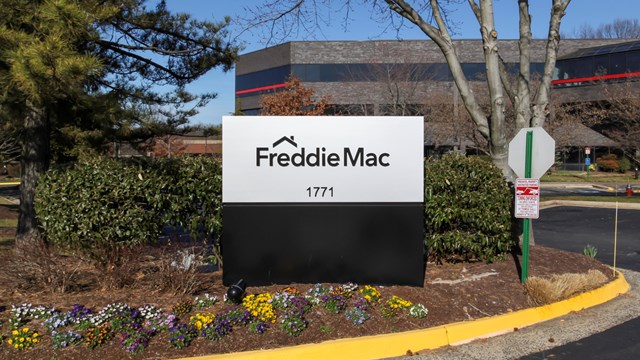
Carrying on The Cooperator's popular series of "roundtable" discussions for professionals in various disciplines of the city's residential real estate industry, a group of representatives from the worlds of co-op and condo law, finance and management met at The Cooperator's offices in July for breakfast and conversation about co-op financials. Topics ranged from co-ops' financing rules for applicants to the increasing popularity and availability of reverse mortgages.
Reprising his role as moderator for the morning's discussion was Al Pennisi, president of the Federation of New York Housing Cooperatives and Condominiums (FNYHC) and a partner with the law firm Pennisi Daniels & Norelli. The panel also included Greg Carlson, the FNYHC's executive director, a longtime property manager and Pennisi's colleague at the Federation, attorney Eric Goidel of the Manhattan law firm of Borah Goldstein Altschuler Nahins & Goidel, PC, Anthony Mancusi, Kathy Schenker and Peter Matzerath of Sovereign Bank, Neil Davidowitz, an attorney and president of Orsid Management, and Mona Shyman, vice president of the Federation and with the management consulting firm MHS Consultants.
Also present were members of The Cooperator's editorial staff: Managing Editor Debra A. Estock, Associate Editor Crystal Proenza and Editorial Assistant Olga Alexander.
Pennisi opened the morning's discussion with a few welcoming remarks to the assembled panel, and kicked off the conversation with the question of cooperation between lenders and lawyers when it comes to borrowing money—whether for an individual unit purchase, or on behalf of an entire building.
"One of the things you've got to do is have a dialogue between the cooperative management, their attorneys and the Federation," says Pennisi. "With attorneys, the first concern is that the bank has a solid, financially stable property so that when the buyer buys into it and the bank finances that purchase, there's no doubt that in the final analysis, the loan will be paid."
"The problem with the smaller co-ops is that some of them don't give you their financial statements," adds Carlson. "Here you are in 2007 and they haven't got statements for 2005! And then the bank says, 'Well, how about a balance sheet?' and they say, 'We don't have that either.'"
Even when a building doesn't exactly have its financial house in order however, "We don't try to kill the deal," says Mancusi. "We'll go to great lengths to try to get the mortgage for the customer because the customer is the one in a bad situation. And they have to come to us first to get an approval before they go in front of the board…so in that situation, you try to rush those through for them. We tell [the borrower] up front what the requirements are. We ask for the name of the co-op right away—but often, the applicant doesn't really know the true name. They think it's just the address, or someone at the co-op tells them it's thus-and-so, and it's actually not."
"There are also buildings—especially in the other boroughs - that have a mailing address, but the address according to the city of New York is another address," Shyman adds, "so [the name of the co-op] becomes a little confusing."
Getting in the Door
A question was raised as to what types of things co-ops require when they're looking at financial issues. "First, they all have published limits on what percentage of [an apartment's] value you can borrow," says Davidowitz. "We recommend—and most boards have agreed—that we don't just accept your appraisal value. If you look at the way my financing policies are drafted, its 80 percent or 50 percent or 75 percent of [the apartment's] fair market value. The reason why we publish that is because we don't want to be married to your appraisal—sometimes we find that those appraisals are wrong. We would rather the board retain the discretion of defining value. Then usually, there's an income-to-debt analysis, a credit score evaluation, and an evaluation of the buyer's assets."
"I think that co-ops want to see bank statements and broker statements maybe going back six months or so," adds Goidel. "They want to see a track record of assets in the bank as well."
It was also pointed out that certain categories of buyers—retired seniors, for example—who no longer have an income, may be running into financial trouble. They may have a pension, or interest from savings or investments, but they don't meet the usual income ratios. In these cases, certain co-op buildings are now requiring one or more years of maintenance to be paid up-front and put in escrow, to thus guarantee payment.
One of the main components discussed that co-ops require is a commitment letter from the bank providing the loan for the purchase of a co-op. "There are a lot of buildings that won't interview [a purchaser] unless they have the mortgage certificate," says Goidel. "That mortgage commitment is an important document to read, because there are items there that will explain things about the applicant that you may not get in their application. I tell my co-ops, 'Read the commitment letters,' because sometimes those terms and conditions are very important to the co-op in making its financial determination about the borrower. This is important, because the borrower may not tell them about certain issues."
But what about mortgages where a parent gifts the money to their child? Say, for example, that the parents only want the child's name on the mortgage, and so give them the money - how would such a transaction impact the loan process?
"Gifts are allowed on all loans as long as the borrower puts at least five to ten percent of their own funds into the transaction," says Mancusi, adding that they would also require a co-signer and a note.
Pennisi pointed out that many co-op boards have stricter financial requirements than the banks.
"A lot of co-ops now are asking for not only tax returns, but also the authority to apply for and review your actual tax returns," says Pennisi. "I have a couple of buildings that will take an extremely conservative approach," he says. "They will do their analysis assuming the worst-case scenario. Each building has a different philosophy."
Reverse Mortgages and Other Products
One issue of great interest to the assembled panel was that of reverse mortgages—loans that enable senior homeowners to borrow against their accumulated equity without making monthly mortgage payments. The balance of the loan is paid out of the borrower's estate upon his or her death.
"We just came out with reverse mortgages in general about two months ago," says Mancusi of Sovereign Bank. "We didn't release [the product] to co-ops, because we're trying to take baby steps as far as reverse mortgages go. We do plan to look into [reverse mortgages] for co-ops because we do get a lot of inquiries about them from co-op shareholders."
"A lot of my portfolio is Upper West Side/Upper East Side," puts in Davidowitz. "The buildings were converted in the early to mid-1970s. There are people now in their 80's, no mortgages, sitting on $3 million in equity who literally can't afford the maintenance on the apartment." In that case, he continues, a reverse mortgage can mean the difference between having to choose between paying one's maintenance or paying for medications, or spending the remainder of one's years with financial peace-of-mind.
Refinancing Roundup
"When refinancing, sometimes the co-ops have a different ratio they want in terms of a percent maximum," says Goidel. "They might cap the borrowing at a lower percentage, compared to a purchase or the amount that you need to refinance what's existing (whichever is greater). They don't want that person who bought for $120,000 and now has an apartment worth $3 million pulling out $2 million and deciding to pack it in. Happens all the time."
"I think there's a big disparity amongst co-ops about how they handle re-fis," Carlson says. "I think they're all basically the same as far as a new sale or resale is concerned, but I think there are big differences when it comes to [a shareholder] refinancing and how a cooperative handles that. Especially when the resident has an existing loan and now they want a credit loan."
But what if an individual shareholder gets a home equity or a line of credit, is board approval required? The answer is yes, according to the panel. And not only must the board approve the loan, but they must actually sign the recognition agreement as well.
"People don't realize that a condo owner could go to the bank and take out 95 percent of the market value [of their apartment] in a loan," says Davidowitz. "If the market tips, and they're sitting with no equity in their unit, they default. In a co-op, the co-op has priority lien over you. You may have a cash-flow issue, but they're going to collect their money anyway. Condos really have exposure—and nobody's really focused on this, in my opinion."
"What Neil has been talking about is going to be an issue because outside of New York City, where the market has dipped a great deal," says Carlson. "Especially in the South—specifically in Southern Florida—there's been a lot of condominium buildings where they had to actually revert to rentals. This is because there are so many foreclosures, and the condo basically went out of business. There was such a slump in the sales price that the banks were not recouping their equity."
Condos Into Co-ops?
The panelists were also asked if they thought that the requirements for prospective buyers were becoming more stringent —perhaps even mirroring co-ops to a point, even in the financial arena.
"It's happening," responds Pennisi. "The condos are trying to rewrite their rules to mimic the cooperatives in terms of sales, leasing and financing. But they want to have to write up approvals, because with condos you have to amend the declaration of condominiums—which is filed like a deed—and they need the consent of the unit owners. Often, they need a very large percentage of the unit owners to approve it. Some of them just take a shortcut, and skip going to the unit owners. They just pass the resolution, write all the new rules concerning sales, leasing and financing, and they enforce those rules and charge fees for particular transactions. One of my condos—which shall remain nameless—is going to be sued, and money is being called back because they never got approval."
"Even if they do get the approval," says Goidel, "there's going to come a time when the [process of approval to buy a condo unit] butts up against the whole concept in New York of restraint on alienation of property. And I think there will come a point where even if the unit owners approve [stricter approval processes], a court is going to say, 'This is no longer a condo.'"
According to Goidel, "The irony to this is that co-ops want to be like condos because they see that condos are getting a 20 percent premium in Manhattan, and the condos are trying to become more like co-ops. The condos are going to start cannibalizing their retail prices if they get too strict on some of their policies. The prices are going to kind of merge."
"The good thing about a condo is you have a lot of people who maybe can't document their income," says Goidel. "You have a lot of people from foreign countries coming in that will not buy in a co-op no matter what. But if they start having these restrictions where the distinction kind of gets masked, things are going to change."
Indeed, the constancy of change in the worlds of New York City real estate and finance was a connecting thread throughout the morning's spirited discussion. When the roundtable, concluded, the participants expressed their pleasure at the opportunity to sit down and discuss the intersections of their various businesses in a relaxed, informal atmosphere. (The bagels and coffee helped too, of course!)
Stay tuned for the next roundtable and if you would like to participate, please contact us at editorial@cooperator.com.









2 Comments
Leave a Comment